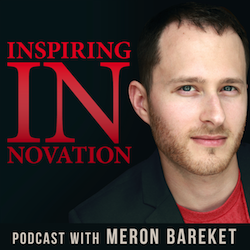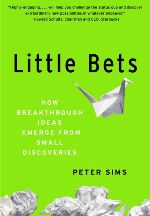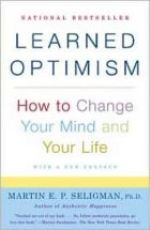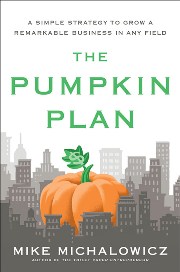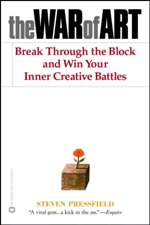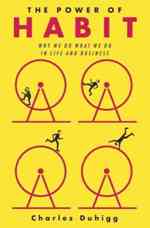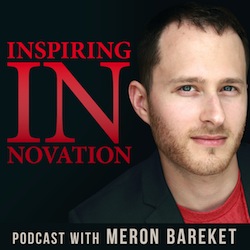What Is Business Acumen?
Business acumen is incredibly important to entrepreneurs, but why?
From a detailed survey that I conducted this morning, by asking the first 3 people I saw online (okay, maybe it’s not that detailed…). It turns out that many aren’t sure what exactly the word means. To be honest, I wasn’t so sure myself. I knew it’s important — I just didn’t know how important it is.
Acumen: the ability to make good judgements and quick decisions in a particular domain.
When presented this way, I don’t need a survey to know that every entrepreneur would understand the importance of having the ability to make good judgement and make quick decisions in business.
While business acumen is traditionally something spoke of in large corporate and MBA programs, I believe it’s time for entrepreneurs to catch up. And this is what today’s episode is all about.
Business Concepts In Today’s Episode
In today’s episode we will cover:
- The 5 performance metrics that drive all Fortune 500 companies, and how they apply to every entrepreneur.
- How to build your business acumen without getting an MBA and without spending tons of time on it.
- How to become the CEO your entrepreneurial business needs.
- Why growth can sometimes be the worst thing for business.
- A free giveaway of my guest’s book.
Today’s Guest
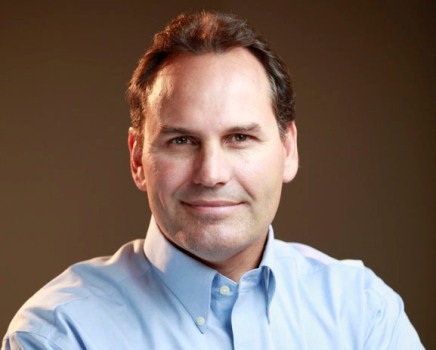
Over the last 12 years, Kevin and his company had helped 18 of Fortune50 companies train and educate their employees on business acumen — on understanding what makes a business succeed, on what makes a business work, what makes a business money.
I don’t even remember how Kevin and I got talking, but I have seen Kevin’s latest book titled “Seeing The Bigger Picture”, and I have seen some reviews about it, saying that it’s a 180-page MBA. And I thought, “Maybe that’s a great idea for the Inspiring Innovation Podcast.”
If you’re anything like me and you never had an official business school education, I thought you could benefit as much as I could from having Kevin on the show doing Business Acumen 101 and just walking us through the basic and different things that we should be monitoring and paying attention to just like major companies do.
While we might not be a CEO of a corporate, we are the CEO of our own entrepreneurial business.
Unlike corporates that have their investors’ money, the money that we have is our own — it’s our own savings, our own family’s support or whatever it is — and we need to make it work. We need to be good CEOs to our entrepreneurial businesses.
So this is what today’s episode is all about.
Free Giveaway!
If you’re interested in developing your business acumen, Kevin has generously contributed 5 copies of his latest book to be given away to listeners of Inspiring Innovation.
How can I win a copy?
All you have to do in order to receive one of the free copies, is leave Inspiring Innovation Podcast a 5-star review on iTunes (you can do that at iipodcast.com/itunes) and then e-mail me at [email protected] to let me know you’ve done so. The first 5 listeners/readers to complete these steps will receive a copy free of charge.
For those interested in a more detailed approach, Kevin has also made his online course available to listeners of Inspiring Innovation at a 50% discount that you can claim here: http://seeingthebigpicture.com/innovation/.
But I’m An Entrepreneur! Do I Still Need To Develop Business Acumen?
I would argue that in most cases, being an entrepreneur means that business acumen is actually more crucial to you than it is for a corporate employee. While lacking business acumen will slow you down in climbing the corporate ladder and would limit how high can you climb, lacking business acumen as an entrepreneur increases the risk you take and hinders your chances of success.
I’m not saying you need to get an MBA in order to become a successful entrepreneur, but it does make sense to know the 5 key metrics every business, whether it’s your corporate job or your entrepreneurial business, should be paying attention to.
After all, while your corporate employer has the backing of banks and investors, your backing is your savings, your checking account, and perhaps some help from family and friends. For me that makes the best case why every entrepreneur needs to spend the time understanding how companies make money.
The 5 Performance Metrics You’ll Need
In today’s interview, Kevin shared the 5 performance metrics that you’ll need in order to get the full picture of how your entrepreneurial business is performing financial-wise. While many experts would recommend 5, 10, 15 more metrics to monitor, the following 5 are the most crucial and simple of them all, according to Kevin.
- Cash
- Profit
- Assets
- Growth
- People
As you’ll soon see, these 5 metrics are all interconnected. Affecting one of them always affects the others, but often in unexpected ways (at least until you think about it).
For instance, many entrepreneurs believe that more growth equals more cash and bigger profit. Not necessarily so: Depending on the engine of growth, growth may actually be achieved by spending more money on marketing, which immediately cut cash and profit.
If the growth is too fast, quality of service might decrease, causing a further loss of sales and existing customers and making the business take a hit in cash, profit and people (in this case customer).
If I mentioned people already, rapid growth might also take a hit on your employees, who might become too overloaded with work and provide a work service or simply leave. Employees are another aspect of the people metric. And in fact, rapid growth is what caused the people of my first software business, in that case me and my 2 employees to burn out and leave.
Cash
When it comes to cash there are two measures you’ll want to pay attention to.
- Cash-on-hand
- Cash flow
Cash-on-hand, basically means the amount of money you currently have on your savings or checking account. That’s the amount of money your business have in order to run. I don’t believe I need to explain in detail why this is a key metric since it’s pretty obvious that when cash-on-hand goes negative, the game is over.
Cash flow basically stands for how much cash is coming in minus how much cash is being spent. Most businesses end up launching with a negative cash flow. This means that every month, the amount of cash-on-hand decreases steadily.
One of the key things every business strives to achieve is a positive cash flow. In the startup world as well as in entrepreneurship, we need to achieve positive cash flow as fast as possible before you ran out of cash-on-hand.
But even if your cash flow is positive, you’ll still want to be monitoring it to see how you can make the cash flow bigger, which means you’re making more money compared to what you are expending.
Kevin outlined 5 quick ways to increase positive cash flow.
- Sell more
- Reduce expenses
- Better manage your inventory (if that applies to your kind of business)
- Pay slower — negotiate your payment terms to allow you to pay slower and reduce the negative cash flow.
- Get paid faster — if your business is going under, and you have customers owing you over $10,000 (as I had), it’s not hard to understand that paying more attention to your account receivables and being more proactive in collecting the money you’re owed, can make a huge impact on the success of your business
Profit
Not too different from looking at cash flow, profit is how much money being made on sales minus how much money is spent on expenses. An interesting metric to look up when it comes to profit is your profit margin. This is basically a percentage of how much more money you’ve made out of each sale compared to the business cost of making that sale.
According the Kevin, a typical profit margin across major companies is around 9% and he has found that to be the case in many other industries as well.
A benefit of monitoring your profit margin is that it’s an indicator of the financial risk you’re taking in your sales. Often, growing companies take a hit at their profit margin and sometimes they go too far.
Your profit margin metric will make sure you’re not only making enough money to float, but actually make enough money to grow. In fact, you’ll find many entrepreneurs you’ll read and hear recommends a profit margin of at least 8% to 12% for an entrepreneurial business.
Assets
Your house, your cash savings and your investments are all assets that you own. While none of them necessarily is used to produce revenue, they do support a certain standard of living and allow you to pursue your lifestyle and personal growth.
Likewise, your entrepreneurial company has assets that should be used in its growth by producing revenue and profit. Without the right assets, no business can grow; it simply cannot be profitable.
Your assets might be an inventorial product, your laptop/desktop that you bought, or the workroom at your home where you’re building your business from. Assets might be transportation you use, etc. Your account receivables (the money people owe you) are also an example of an asset. Intellectual property and your knowledge can be an asset.
When it comes to assets, there are two metrics you’re looking at:
- Asset strength
- Asset utilization
Asset Strength
When it comes to asset strength, you’re looking at 2 factors: Liquidity and the nature of the asset (particularly, can these assets be used to generate revenue versus those that can’t).
Liquidity means how easy it is to quickly generate more cash in order to solve unexpected problems or writing out down market using the assets you have.
The second factor, the nature of the asset themselves, is pretty self-explanatory. You want to have as little amount as possible of assets that aren’t used to generate revenue.
Asset Utilization
Asset utilization. Accumulating assets, even if they are liquid aren’t necessarily very helpful. At the end of the day, explains Kevin, if your accumulation of assets, whatever those assets are, does not directly contribute to making a bigger revenue is probably assets you don’t need.
Growth
Second to cash flow, growth might be the most discussed metric. I’m assuming that I don’t need to explain in too many details what growth is. At the end of the day, it boils down to are you more sales and getting more customers.
But one caveat that Kevin mentioned in today’s interview is this: A few years ago, Toyota was hard on focused on growth while losing sight of their quality control. When the quality suffered and they have to issue recalls, their bottom line suffered heavily.
Another example is the dot-com era: So many companies were solemnly focusing on the growth metric alone that completely lost sight of their profit margin, of their cash flow, and worse of all, on their cash-on-hand.
Rapid growth can be expensive and focusing solemnly on growth while ignoring its effect on the other metrics, can mean a deadly blow to your business.
People

The last but not least metric is people. These include both your customers and your employees. It’s pretty obvious the importance of the customers metric: Are they happy? Are they satisfied? Is your customer service quick and efficient?
Are your employees satisfied? Are you helping them grow? Are you treating your employees as well as you’d like them to treat your best customer? Neglecting either your customer’s happiness or your employees’ happiness can bring down the most financially stable company.
So these are the 5 metrics Kevin recommends you to pay attention to. I’d love to hear in the comments section what’s your take on each, and if there’s any metric you really think you should start paying attention to
Podcast Starter Kit
As mentioned in today’s episode, I’m really excited to announce my new free course: The Podcast Starter Kit.
The Podcast Starter Kit is a 7-day video course that will take you from knowing nothing about podcasts, to planning, recording and launching your successful podcast show, ranking in the top of Apple New & Noteworthy ranking, building your list, your brand, and your authority in whatever niche you’re in.
Click here to get immediate access to the Podcast Starter Kit.
Resource That Will Help You See The Bigger Picture
- Kevin Cope: Acumen Learning on Twitter: @acumenlearning, Facebook, YouTube, LinkedIn
- Acumen Learning
- His book: Seeing The Big Picture
- Get a discount for Seeing The Big Picture e-course here
- Zappos and Tony Hsieh
- Bloomberg Businessweek
- CNNMoney
- Google Finance
- Yahoo Finance
- Podcast Starter Kit
I Need Your Help!
If you haven’t already, I would love if you could be awesome and take a minute to leave a quick rating and review of the podcast on iTunes by clicking on the link below. It’s the most amazing way to help the show grow and reach more people!
Leave a review for Meron’s podcast!
Affiliate Disclosure: Please note that some of the links above are affiliate links. There is no additional cost to you, and I will earn a commission if you decide to make a purchase.
Don’t Miss an Episode! Subscribe Below:
––– http://www.meronbareket.com/feed/podcast/ –––
Photo Copyrights:
Fotolia_50266769_S_© gawriloff – Fotolia.com
Fotolia_42716248_S_©-Sergey-Nivens-Fotolia.com
Fotolia_59306088_Subscription_Monthly_M_©-freshidea-Fotolia.com














